
MSCA Individual Fellowships - Archive
H2020 MSCA - IF 2017
Claudia Cecchetto - GRACE: hiGh-Resolution imAging of the barrel CortEx through VSD and LFP recordings (2019- 2021)
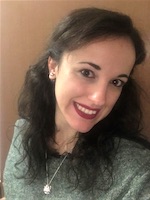 Claudia Cecchetto is a biophysicist specialized in in vivo electrophysiological recordings from the rodent primary somatosensory cortex. She obtained her PhD in Bioengineering from the University of Padova in 2016, where then she has worked as a Postdoctoral Research Fellow. Her doctoral thesis focused on the characterization of sensory information encoding by neuronal microcircuits in the rat brain, investigated through an innovative bi-directional and high-resolution brain-chip interface. In 2017 she has been awarded a Canon Foundation Research Fellowship and in 2018 he received a MSCA Global Fellowship. The aim of her MSCA project “GRACE” is to develop an innovative and advanced dual approach to study how parameters (i.e. velocity, amplitude, direction) of whisker deflections are encoded into the barrel cortex, combining Voltage Sensitive Dye (VSD) imaging and high-resolution electrical recordings. During the outgoing phase, she will work at OIST (Okinawa Institute of Science and Technology) in Okinawa, Japan, training on VSD imaging in mice and focusing on the development of this new experimental technique, under the supervision of Prof. Bernd Kuhn. During the returning phase, she will transfer her knowledge on chronic in vivo VSD imaging of the mouse barrel cortex to the University of Padova, joining the “Neurochip Lab” under the supervision of Prof. Stefano Vassanelli.
Claudia Cecchetto is a biophysicist specialized in in vivo electrophysiological recordings from the rodent primary somatosensory cortex. She obtained her PhD in Bioengineering from the University of Padova in 2016, where then she has worked as a Postdoctoral Research Fellow. Her doctoral thesis focused on the characterization of sensory information encoding by neuronal microcircuits in the rat brain, investigated through an innovative bi-directional and high-resolution brain-chip interface. In 2017 she has been awarded a Canon Foundation Research Fellowship and in 2018 he received a MSCA Global Fellowship. The aim of her MSCA project “GRACE” is to develop an innovative and advanced dual approach to study how parameters (i.e. velocity, amplitude, direction) of whisker deflections are encoded into the barrel cortex, combining Voltage Sensitive Dye (VSD) imaging and high-resolution electrical recordings. During the outgoing phase, she will work at OIST (Okinawa Institute of Science and Technology) in Okinawa, Japan, training on VSD imaging in mice and focusing on the development of this new experimental technique, under the supervision of Prof. Bernd Kuhn. During the returning phase, she will transfer her knowledge on chronic in vivo VSD imaging of the mouse barrel cortex to the University of Padova, joining the “Neurochip Lab” under the supervision of Prof. Stefano Vassanelli.
Saša Hrnjez - TRANSPHILEUR: TOWARD A PHILOSOPHICAL RETHINKING OF TRANSLATION: Effects of Translation in a Contemporary European Space (2018-2020)
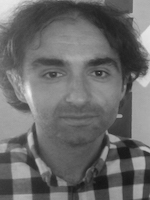
Saša Hrnjez is a Ph.D in theoretical philosophy from the University of Turin (2015). In previous years he was a research fellow at the Italian Institute for Philosophical Studies in Naples and a DAAD post-doc research fellow at the Heidelberg University. He studied philosophy at the University of Novi Sad (Serbia), University of Turin (Italy), with short study and research stays at the Freie University Berlin. So far, he has published articles in Italian, English, Serbian and German in his main research fields: German classical philosophy (Kant, Hegel), hermeneutics, translation theory, contemporary Marxism. In 2013 he won the Young Scholar Award of the IAA for an essay on Kant’s aesthetics of the sublime. He is one of the founders of "Stvar - Journal for theoretical practices" and a member of the Editorial Staff of "Trópos. Rivista di ermeneutica e critica filosofica". Working as a translator in the field of humanities, so far he translated 20 articles from Italian, English and German and 5 books from Italian in Serbian (e.g. translation of Galileo’s Dialogue). In 2018 he has been awarded a MSCA European Fellowship “Toward a Philosophical Rethinking of Translation: Effects of Translation in a Contemporary European Space “. His research proposes a conception of translation as a self-reflexive transformational practice, investigating at the same time importance and effectiveness of translation in the contemporary European political and cultural context. Saša will conduct his research at the Department of Philosophy, Sociology, Education and Applied Psycholog under the supervision of Prof. Luca Illetterati.
Links: https://unito.academia.edu/SasaHrnjez
Anna Fabiola Marino - Global Assemby: Building up the Milky Way Halo in the era of multiple stellar populations (2018-2020)
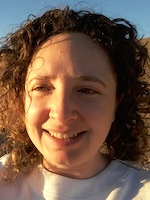 Anna Fabiola Marino received her PhD degree in Astronomy in 2010 from the University of Padova, under a joint program with the Universidad Catolica de Chile. After her PhD, she has conducted her research in some of the most prominent centers for astrophysics studies, namely the Max Planck Institute for Astrophysics in Garching (Germany), and the Research School for Astronomy and Astrophysics (The Australian National University). In these institutes she has closely collaborated with world-leading experts in the fields of stellar and Galactic astronomy, including Profs. M. Asplund, M. Bessell, and the Nobel laureate Prof. B. Schmidt.
Anna Fabiola Marino received her PhD degree in Astronomy in 2010 from the University of Padova, under a joint program with the Universidad Catolica de Chile. After her PhD, she has conducted her research in some of the most prominent centers for astrophysics studies, namely the Max Planck Institute for Astrophysics in Garching (Germany), and the Research School for Astronomy and Astrophysics (The Australian National University). In these institutes she has closely collaborated with world-leading experts in the fields of stellar and Galactic astronomy, including Profs. M. Asplund, M. Bessell, and the Nobel laureate Prof. B. Schmidt.
In 2015 she was awarded a "Discovery Early Career Researcher Award" from the Australian Research Council. She has been recognized by the international scientific community in the field of stellar spectroscopy and star clusters research for her novel and fundamental contribution to the studies on stellar populations in globular clusters.
In 2018 she has been awarded a MSCA European Fellowship. Her project, Global-assembly, will focus on newly discovered generations of stars in globular cluster, that are among the oldest objects in the Milky Way. Her studies will provide a chemical characterization of stars in globular clusters, and will constitute a step forward to understand the nature of these ancient stellar systems and their possible connection with dwarf galaxies. The outcome of this research will be crucial to understand the formation mechanisms of the Milky Way and the contribution given by globular clusters to the Galactic Halo assembly. She will work with Prof. Giampaolo Piotto at the Department of Physics and Astronomy.
Martha Giovanna Pamato - SINDIA: Sulphide INclusions in DIAmonds: A Window into The Earth’s Interior Through Time 2019-2021)
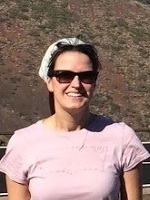 Martha Giovanna Pamato is currently a Postdoctoral Research Associate at the Department of Earth Sciences, University College London, UK. She obtained her BSc in Geology at the University of Padua in October 2008. After that, she moved to Bayreuth, Germany where she obtained her MSc (2010) and PhD (2014) in Experimental Geosciences at the Bayerisches Geoinstitut, University of Bayreuth. She was a Postdoc Researcher at the Department of Geology, University of Illinois at Urbana-Champaign, USA from September 2014 until September 2015 and she has been conducting research at the Department of Earth Sciences, University College London since November 2015.
Martha Giovanna Pamato is currently a Postdoctoral Research Associate at the Department of Earth Sciences, University College London, UK. She obtained her BSc in Geology at the University of Padua in October 2008. After that, she moved to Bayreuth, Germany where she obtained her MSc (2010) and PhD (2014) in Experimental Geosciences at the Bayerisches Geoinstitut, University of Bayreuth. She was a Postdoc Researcher at the Department of Geology, University of Illinois at Urbana-Champaign, USA from September 2014 until September 2015 and she has been conducting research at the Department of Earth Sciences, University College London since November 2015.
Martha is a mineral physicist and her research aims to address fundamental questions related to the formation and evolution of the Earth. In the past years, she also started to study rare and unique natural samples forming in the deepest regions of the Earth, such as inclusions in diamond, to compare experimental data with natural information. Her research goal is to constrain the structure and composition of the deep Earth and better understand global processes with implications to the formation of the Earth and its atmosphere, and the development of life.
From April 2019, she will be a MSCA Fellow at the Department of Geosciences, University of Padua, where she will focus her research efforts on studying sulphide inclusions in diamonds in collaboration with Prof. Fabrizio Nestola.
Elena Salillas Perez - ReMAPMATH: Re-Mapping the Numerical Brain (2018-2020)
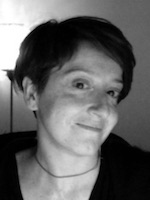 Elena Salillas Perez obtained her first PhD at the University of La Laguna (Spain) in 2007 and a second PhD at the University of Trieste (Italy) in 2008. She has developed diverse research lines along her career. They include research on language processing, math cognition, developmental disorders (Dyscalculia) or bilingual math. She has applied Behavioral, Electrophysiology, Experimental Neuropsychology, lesion analyses, TMS, MEG techniques to test her hypotheses.
Elena Salillas Perez obtained her first PhD at the University of La Laguna (Spain) in 2007 and a second PhD at the University of Trieste (Italy) in 2008. She has developed diverse research lines along her career. They include research on language processing, math cognition, developmental disorders (Dyscalculia) or bilingual math. She has applied Behavioral, Electrophysiology, Experimental Neuropsychology, lesion analyses, TMS, MEG techniques to test her hypotheses.
She has developed another research line, which merges to the health sector: Two projects on presurgical mapping in two distinct types of patients (intractable epilepsy and brain tumors). They entail a collaboration with Florida Hospital for children (FH, US) and Hospital Cruces in Bilbao. They deal mainly with the mapping of language and math functions and imply different methods: ECoG and MEG in FH and fMRI, MEG and DCE in the Hospital Cruces.
Currently, she has focused on the information that the study of reorganization of math functions in brain tumor patients (LGG) can provide in the understanding of the numerical system. She develops this new line of research at the University of Padova (Department of Neuroscience) as a MSC Fellow, in collaboration with Professor Semenza and the Padova Neuroscience Center, the Azienda Ospedaliera di Padova and the IRCCS Fondazione Ospedale San Camillo in Lido.
Rosa Rugani - SNANeB: At the roots of Spatial Numerical Association: from behavioural observation to Neural Basis (2018-2021)
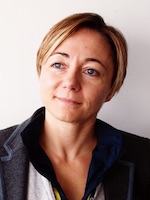 Rosa Rugani is an experimental psychologist specialized in the developmental and evolutionary origin of numerical competences. After a master degree in Psychology and a PhD in Experimental Psychology at the University of Padova, she carried out her research activity at the Department of General Psychology of the same university and at the Center for Mind/Brain Sciences of the University of Trento. She was visiting researcher at the Center for Avian Cognition of the Saskatchewan University (Canada), at the Center for Cognitive Neuroscience, Duke University, North Carolina (USA) and at Department of Psychology of the University of Potsdam (Germany).
Rosa Rugani is an experimental psychologist specialized in the developmental and evolutionary origin of numerical competences. After a master degree in Psychology and a PhD in Experimental Psychology at the University of Padova, she carried out her research activity at the Department of General Psychology of the same university and at the Center for Mind/Brain Sciences of the University of Trento. She was visiting researcher at the Center for Avian Cognition of the Saskatchewan University (Canada), at the Center for Cognitive Neuroscience, Duke University, North Carolina (USA) and at Department of Psychology of the University of Potsdam (Germany).
She is an expert of comparative cognition, experiment’s design, brain lateralization and numerical cognition. In 2008 she received the “Giovani Studiosi” Grant from the University of Padova to investigate the left-right asymmetries in spatial numerical processing and in 2017 she was awarded by the German Academic Exchange Service.
With her project “SNANeB”, in 2018, she received a H2020-MSCA-IF-2017 Global fellowship. Thanks to this grant she will investigate the neural basis of the numerical cognition from a comparative perspective.She will conduct her research activity both at the University of Pennsylvania, Philadelphia, PA (USA) collaborating with Prof. Elisabeth Brannon and Prof. Michael Platt and at the Department of General Psychology, University of Padova, collaborating with Prof. Lucia Regolin.
Hanna Lucie Sladitschek - YAP MECHANO: Elucidating the mechanism of mechanotransduction through YAP and TAZ (2019-2021)
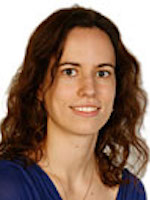 Hanna Lucie Sladitschek received a Master’s in Molecular Biotechnology from Heidelberg University. In 2016, she obtained a joint PhD degree from EMBL and Heidelberg University (Germany) with highest honors.
Hanna Lucie Sladitschek received a Master’s in Molecular Biotechnology from Heidelberg University. In 2016, she obtained a joint PhD degree from EMBL and Heidelberg University (Germany) with highest honors.
Her PhD dealt with cell-fate decision making in embryonic stem cells. She then moved to Padua to join the laboratory of Prof. Stefano Piccolo (Department of Molecular Medicine) supported by an EMBO longterm fellowship. In 2018, she was awarded an MSCA fellowship to study how cells perceive the mechanical properties of their environment under the guidance of Prof. Piccolo, a pioneer in the field.
Her ultimate aim is to understand the molecular underpinnings of mechanobiology in health and disease.
Mario Spera - HOMERICS: The History of Merging Compact-Object Binaries (2018- 2021)
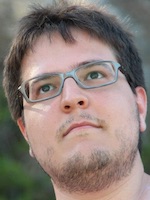 Mario Spera is an Italian theoretical and computational astrophysicist. He investigates the formation and evolution of compact objects (black holes, primarily) through advanced numerical techniques.
Mario Spera is an Italian theoretical and computational astrophysicist. He investigates the formation and evolution of compact objects (black holes, primarily) through advanced numerical techniques.
Mario studied Physics, Astrophysics and Astronomy at “Sapienza” University, in Rome. He obtained his Bachelor degree in September 2008, and his Master degree in September 2010, both cum laude.
He also received his PhD in 2014 at “Sapienza” University, with a Thesis on the use of the latest computing technologies to the study of the dynamics of stellar systems.
In March 2014, Mario moved to the Astronomical Observatory of Padova, where he studied the formation of compact objects in different stellar systems.
In 2017 he was awarded an independent postdoctoral fellowship at the University of Milano – Bicocca and then moved to the University of Innsbruck as postdoc to work on the ‘’ForCOB’’ project. In 2018, Mario was awarded a Marie Curie Global Fellowship and he chose the University of Padova (Padova - Italy, supervisor Prof. Paola Marigo) and the ‘‘Center for Interdisciplinary Exploration and Research in Astrophysics’’ (CIERA) at Northwestern University (Evanston - USA, supervisor Prof. Fred Rasio) as hosts for his research project “HOMERICS”. The main aim of his research is to shed light on the evolutionary pathways of black holes and his final goal is to provide a theoretical interpretation to present and forthcoming gravitational-wave detections.
- Horizon Europe MSCA PF 2024
- Horizon Europe MSCA PF 2023
- Horizon Europe MSCA PF 2022
- Horizon Europe MSCA PF 2021
- Horizon Europe MSCA IF 2020
International Research Office
via Martiri della libertà 8, 35137 Padova, Italy
tel. +39 049.827 1947 / 1948 / 1945
fax +39 049.827 1911
international.research@unipd.it


